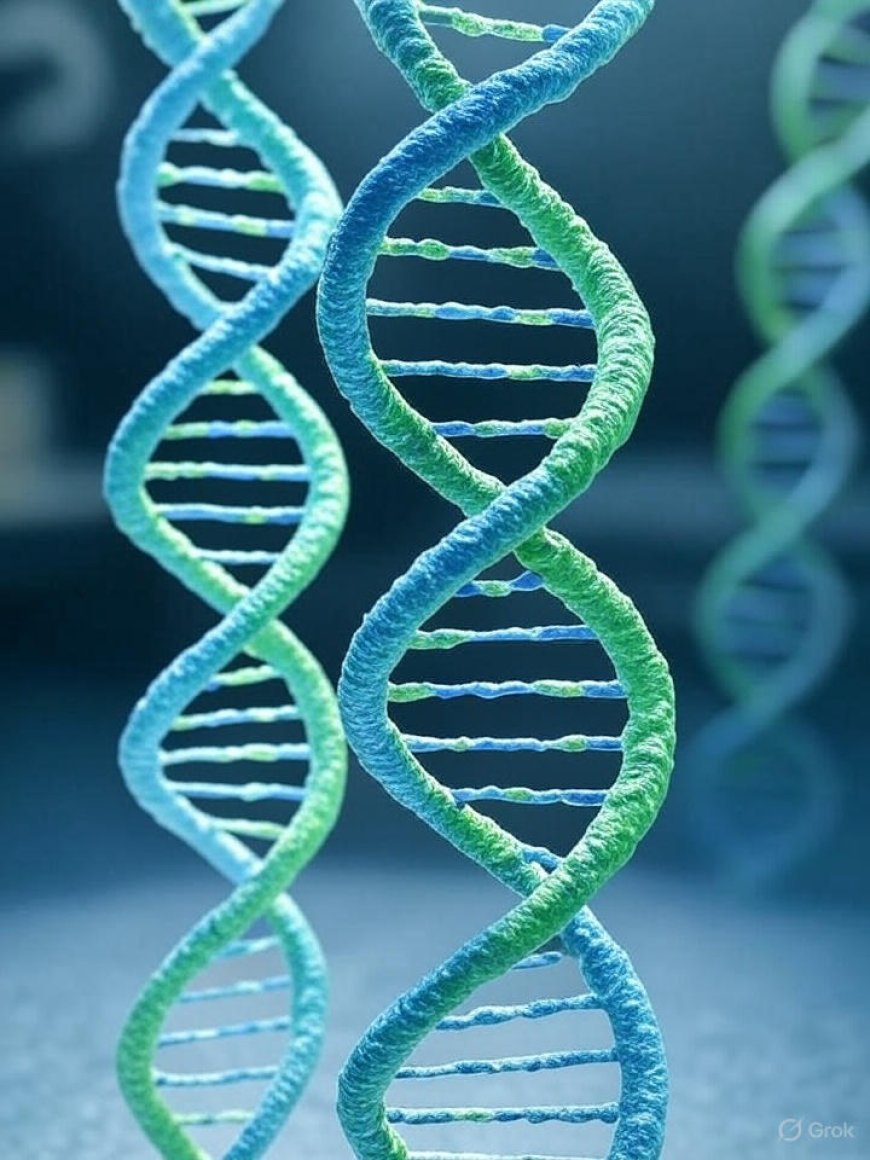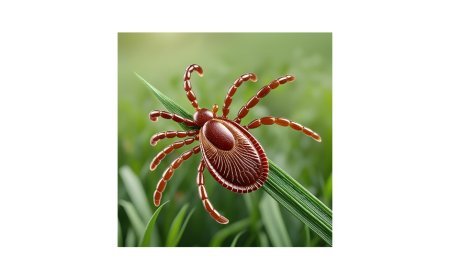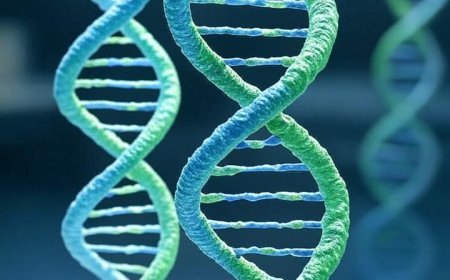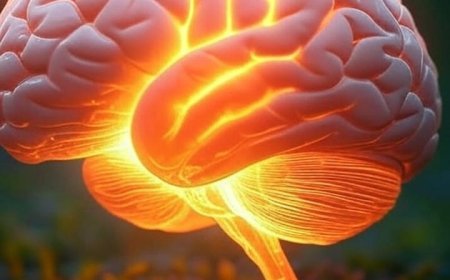Unraveling the Genetics of ADHD: MTHFR, COMT, and MAO Insights
Discover ADHD genetics: MTHFR, COMT, MAO impacts & support tips. Learn diet, environment, toxin solutions! Read now!

Attention-Deficit/Hyperactivity Disorder (ADHD) affects millions, often presenting as inattention, impulsivity, and hyperactivity. While environmental factors play a role, genetics significantly influence its development. Key genes like MTHFR, COMT, and MAO impact neurotransmitter function and detoxification, potentially mimicking or exacerbating ADHD symptoms. This article explores how these genes contribute to ADHD-like traits, how to identify them, and practical steps—through diet, environment, and toxin management—to support those affected.
The Genetic Puzzle of ADHD
ADHD is highly heritable, with studies suggesting up to 70-80% of risk tied to genetics. Beyond dopamine-related genes, MTHFR, COMT, and MAO are emerging as critical players due to their roles in methylation, neurotransmitter breakdown, and stress response.
-
MTHFR (Methylenetetrahydrofolate Reductase): This gene helps convert folate into its active form, methylfolate, essential for producing neurotransmitters like dopamine and serotonin. Mutations, such as C677T or A1298C, can reduce enzyme efficiency by 30-70%, leading to elevated homocysteine levels, which may disrupt brain function and mimic ADHD symptoms like poor focus or irritability.
-
COMT (Catechol-O-Methyltransferase): COMT breaks down dopamine, epinephrine, and norepinephrine. Variants like Val/Val (faster breakdown) or Met/Met (slower breakdown) can alter dopamine levels. Fast COMT may cause low dopamine, leading to inattention, while slow COMT might heighten stress sensitivity, resembling hyperactivity or impulsivity.
-
MAO (Monoamine Oxidase): MAO enzymes (MAOA and MAOB) degrade serotonin, dopamine, and norepinephrine. Mutations affecting MAO activity can lead to neurotransmitter imbalances, potentially contributing to mood swings, aggression, or attention difficulties often seen in ADHD.
These genetic variations don’t guarantee ADHD but increase susceptibility, especially when combined with environmental triggers.
How These Genes Impact ADHD-Like Symptoms
-
MTHFR: Reduced methylfolate production can impair dopamine and serotonin synthesis, leading to symptoms like difficulty concentrating, emotional dysregulation, or fatigue. High homocysteine may also increase oxidative stress, affecting brain health.
-
COMT: Fast COMT (Val/Val) might result in insufficient dopamine, causing sluggishness or poor motivation, while slow COMT (Met/Met) can lead to excess dopamine under stress, mimicking impulsivity or anxiety. Both can overlap with ADHD traits.
-
MAO: Low MAO activity may cause neurotransmitter buildup, potentially triggering restlessness, irritability, or hyperfocus—symptoms that can be mistaken for ADHD, especially in high-stress contexts.
Environmental factors like diet, toxins, and stress can amplify these genetic effects, making symptoms more pronounced.
How to Know If You Have These Genes
Identifying MTHFR, COMT, or MAO mutations requires genetic testing, typically via a cheek swab or blood test. Here’s how to proceed:
-
Consult a Healthcare Provider: An integrative medicine doctor or genetic counselor can order tests through labs like 23andMe (with raw data analysis) or specialized panels (e.g., Genesight). Tests screen for common variants like C677T (MTHFR), Val158Met (COMT), or MAOA/MAOB polymorphisms.
-
Symptoms as Clues: While not definitive, signs like chronic fatigue, mood swings, poor stress tolerance, or a family history of ADHD, anxiety, or depression might suggest genetic involvement. High homocysteine levels (detectable via blood tests) can hint at MTHFR issues.
-
Testing Limitations: Not all mutations cause symptoms, and testing isn’t routinely recommended unless specific health concerns arise. Discuss benefits and costs with a professional, as insurance may not cover it.
Supporting Yourself with These Genes
If testing reveals MTHFR, COMT, or MAO variants, lifestyle adjustments can mitigate their impact. Focus on diet, environment, and toxin reduction:
Diet
-
MTHFR: Increase natural folate from leafy greens (spinach, kale), legumes, and liver, avoiding synthetic folic acid in fortified foods. Consider methylfolate supplements (e.g., 400-1,000 mcg daily) under supervision, paired with active B12 (methylcobalamin).
-
COMT: For fast COMT (Val/Val), boost dopamine with berries, bananas, or green tea. For slow COMT (Met/Met), limit these and add magnesium (200-400 mg) to aid dopamine breakdown. Avoid excess caffeine, which can overstimulate.
-
MAO: Support serotonin with complex carbs (quinoa, sweet potatoes) and omega-3s (fish, flaxseed). Avoid tyramine-rich foods (aged cheese, cured meats) if MAO is low, as they may increase neurotransmitter levels.
Environment
-
Reduce Stress: Chronic stress worsens genetic effects. Practice mindfulness, exercise (30 minutes most days), or spend time in nature to balance neurotransmitter activity.
-
Optimize Sleep: Aim for 7-9 hours nightly. A calm bedroom environment and consistent schedule help regulate dopamine and serotonin, countering genetic imbalances.
Toxins
-
Minimize Exposure: Heavy metals (lead, mercury) and chemicals (BPA, pesticides) can overburden detoxification pathways, especially with MTHFR mutations. Use filtered water, organic produce, and glass storage.
-
Support Detox: Enhance glutathione production with sulfur-rich foods (garlic, broccoli) and consider Epsom salt baths or saunas to aid toxin elimination, crucial for MTHFR and COMT efficiency.
Research Supporting Genetic Claims
The links between MTHFR, COMT, MAO, and ADHD-like symptoms are supported by peer-reviewed studies:
-
Methylenetetrahydrofolate Reductase Gene Polymorphisms in Children with Attention Deficit Hyperactivity Disorder, International Journal of Medical Sciences, Cem Gokcen, Mustafa Kocak, and Ahmet Pekgor
-
Association analysis of COMT/MTHFR polymorphisms and major depressive disorder in Chinese Han population, Journal of Affective Disorders, Xiao Shen, Shenxun Shi, Jingfang Gao, and others
-
COMT and MTHFR polymorphisms interaction on cognition in schizophrenia: an exploratory study, Neuroscience Letters, Dimitris Kontis, Maria-Eleftheria Theochari, and others
A Holistic Approach
Genetic testing and lifestyle changes offer a proactive way to manage ADHD-like symptoms linked to MTHFR, COMT, and MAO. While research continues to explore these connections, individuals can start with dietary tweaks, environmental adjustments, and professional guidance. If symptoms persist, consult a healthcare provider to integrate these strategies with other treatments, ensuring a personalized path to better brain health.
***This article, "Unraveling the Genetics of ADHD: MTHFR, COMT, and MAO Insights," is for informational purposes only and does not constitute medical advice. The content is not intended to diagnose, treat, cure, or prevent any disease or medical condition. Always consult a licensed physician or healthcare professional before making any decisions regarding your health, including genetic testing, dietary changes, or treatment options related to ADHD or any other condition.
What's Your Reaction?
 Like
0
Like
0
 Dislike
0
Dislike
0
 Love
0
Love
0
 Funny
0
Funny
0
 Angry
0
Angry
0
 Sad
0
Sad
0
 Wow
0
Wow
0










































